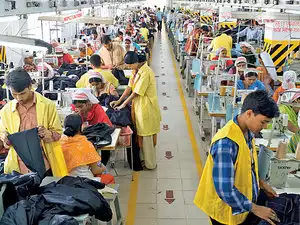How Sheikh Hasina changed Bangladesh from a basket case to a middle income country

Sheikh Hasina’s unprecedented electoral success that brought her to power for a record fourth time will not only continue to ensure stability along India’s eastern border but also open up a plethora of opportunities for sub-regional partnership, with Bangladesh acting as a bridge between India and Southeast Asia. This, in turn, would open up new economic opportunities for Dhaka and nations in the Bay of Bengal region.
The last decade has witnessed unprecedented economic growth in Bangladesh, often described as a basket case due to years of military or military-backed regimes that also enjoyed the blessings of radical forces led by Jamaat-e-Islami. Even critics of the Hasina regime would agree that a steady growth rate of 7% in the past decade has pushed Bangladesh closer to acquiring the status of a middleincome country.
Dhaka would parallel cities in eastern India in terms of cash flow, with a fastemerging middle class whose spending capacity is increasing. The Awami League has vowed to work for realising the aspirations of converting Bangladesh into a developed country by 2041.
Economy & FDI
Inflows Bangladesh may become the 26th largest economy from the current 42nd by 2030, moving ahead of the Philippines, Pakistan, Vietnam and Malaysia. says an HSBC report. The country has been enlisted into the Next Eleven countries by Goldman Sachs — South Korea, Mexico, Bangladesh, Egypt, Indonesia, Iran, Nigeria, Pakistan, the Philippines, Turkey and Vietnam — which are ready to become the biggest economies in the 21st century, after four of the five BRIcountries (Brazil, Russia, India and China).
It is Hasina’s contribution that has made a least developed country such as Bangladesh a developing country now, going by economic indicators. Her first term as prime minister (1996-2001) was a warm-up phase, coming after years of decay and deadlock caused by the assassination of her father Sheikh Mujibur Rahman in 1975. It, however, faltered as the BNP-Jamaat alliance took over and unleashed a reign of violence, corruption, religious extremism and militancy that lasted for a full term of five years from 2001.
Source: https://economictimes.indiatimes.com